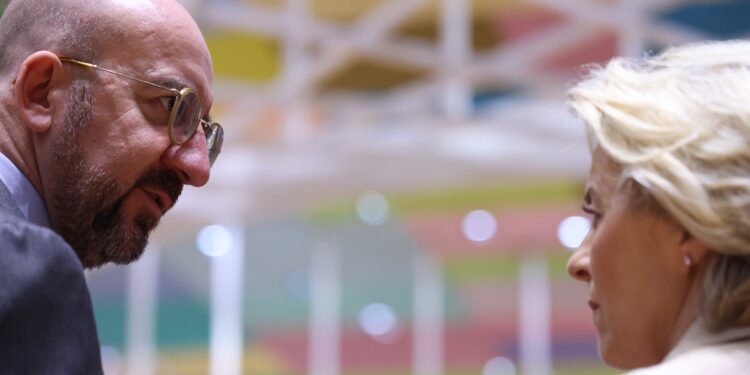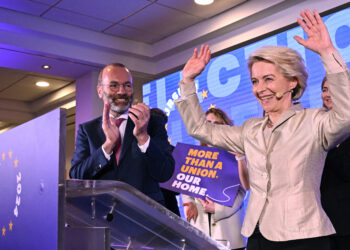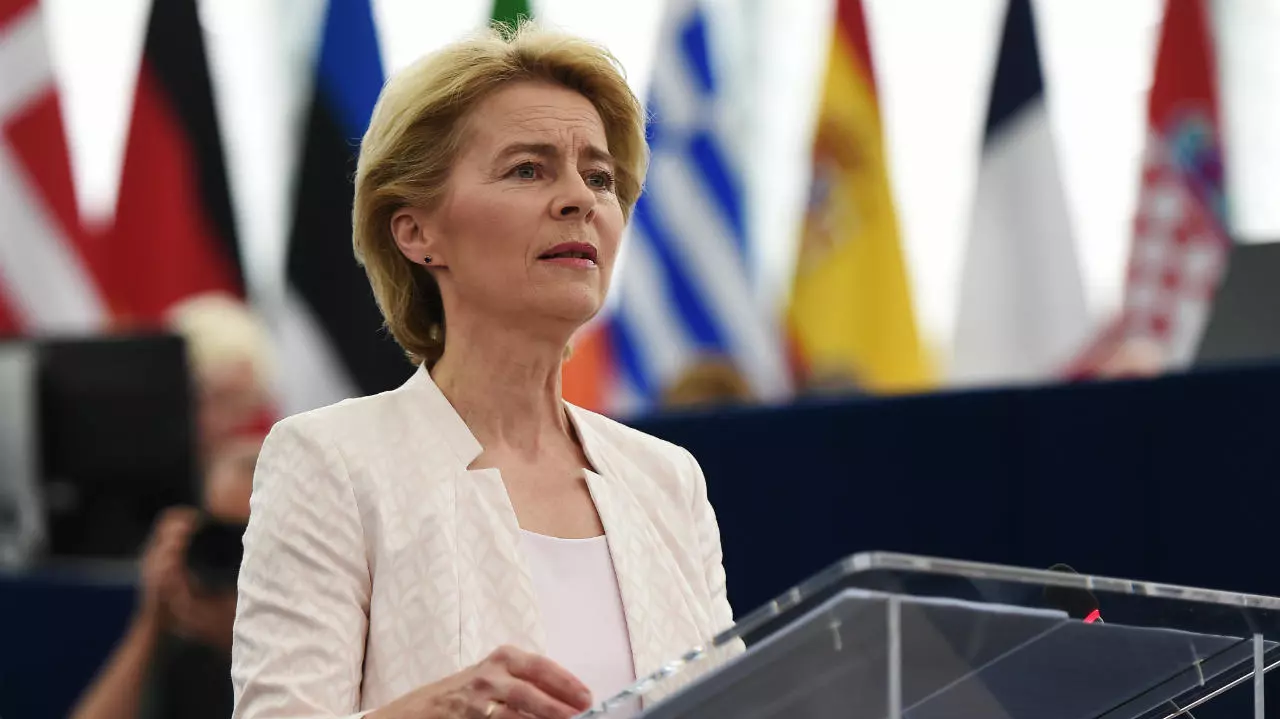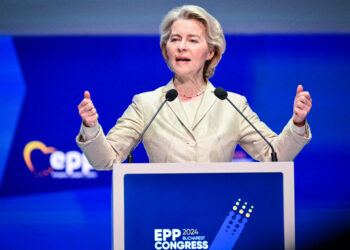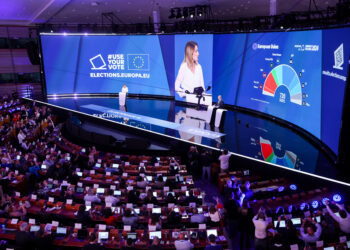Brussels – It could be a particularly accelerated process that will skip the usually less forced stages of choosing the presidency of the European Commission. After the results of the June 6-9 elections, Ursula von der Leyen is in the running to succeed herself at the helm of the Union’s executive and, in a pretty delicate and unpredictable political framework in the 27 EU member states, her game will begin very shortly. More precisely, on June 17, the date of the informal summit of heads of state and government that will kick off, unofficially, over dinner, discussions on appointments to the top posts of the EU institutions.
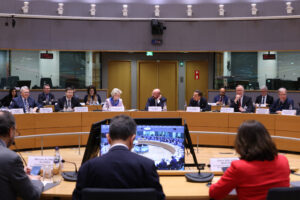
Having cashed in foregone support from the pro-European EPP-S&D-Renew Europe majority in the EU Parliament –not considering the composition and weight of the parliamentary groups that are still not final, as well as the possible opening to the Greens — the future of a second von der Leyen term will be decided at the table of the heads of state and government. “Following the European Parliament elections, EU leaders will discuss the next institutional cycle,” according to the agenda of the informal summit scheduled for Monday (June 17), which recalls the “central role” in the designation of three high-profile roles of the Union: President of the European Commission, President of the European Council and EU High Representative for Foreign Affairs and Security Policy. At the dinner of the Twenty-Seven, discussions will kick off to try to lighten the already full agenda of the ordinary European Council on June 27-28 (at which might also find space for Mario Draghi‘s report on the future of European competitiveness), but with no final decision expected as early as next week.
According to what several sources told Politico, the President of the European Council, Charles Michel, is reportedly attempting to exclude the current President of the Commission–who is also the Spitzenkandidatin (leading candidate) of the European People’s Party to lead the EU executive — from Monday’s informal summit. The official motivation is precisely the race to succeed herself. However, the same sources say that there is irritation among the 27 leaders toward Michel for the attempt to condition the choice of the Presidency of the future Commission on purely personal grounds, hindering a figure like von der Leyen (with whom for years, it is no secret that there has been bad blood) to a second term. “It is an informal dinner of the members of the European Council, of which the President of the European Commission is a member. We expect her to attend,” EU executive spokeswoman Arianna Podesta commented briefly today (June 11) during the press point in Brussels. “At the moment, we have no other information to share.”
Beyond the embarrassments created by the ongoing political skirmishes between the two Presidents of the EU institutions, “any European Council decision must reflect the diversity of the EU in terms of geography, country size, gender, and political affiliation,” the EU institution points out. That’s why the balance of power at the heads of state and government table will have to be considered, particularly the political crisis in France, the difficulties of the ‘traffic light’ coalition in Germany, the advance of the far right in Austria on the eve of national elections, the controversial government being formed in the Netherlands, and the stalemate expected in Belgium. The political picture in the 27 capitals is far from stable, and this could become the real difficulty for von der Leyen in getting reappointed as head of the EU Commission: she will certainly need the hard core of the leaders in the EPP quota (Greece, Croatia, Sweden, Finland, Romania, Poland, Austria, Portugal, Latvia, Luxembourg, and Cyprus), but also the support of the Socialists (‘her’ Germany, Spain, Slovenia, and Denmark), the green light of the French President, Emmanuel Macron, and a non-opposition of the Italian Premier, Giorgia Meloni.
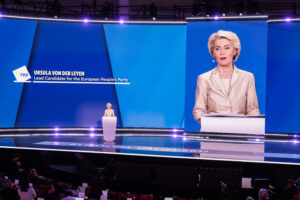
Meanwhile, the process within the European Parliament also continues ahead of the vote that will have to confirm the choice by the European Council. As the new balance of power between the political groups in the tenth legislature is being defined, this morning, the President of the European Parliament, Roberta Metsola, convened the Conference of Presidents to begin the discussion on the results of the European elections, which will lead to the formation of a majority based on a political program for the next five years of the legislature. Reportedly in Brussels, the Presidents of the major groups have reiterated their support for the Spitzenkandidaten procedure, implicitly giving the green light to von der Leyen’s reappointment after the EPP’s electoral success. While waiting for a potential decision by the 27 heads of state and government already at the European Council at the end of June, the European Parliament is preparing for its inaugural session in Strasbourg on July 16-19. To be sure, at the first plenary session, the new MEPs will take office, the parliamentary committee heads will be chosen, and the new President of the Parliament will be determined. However, there may also be a confirmation vote for a second von der Leyen term at the European Commission.
English version by the Translation Service of Withub